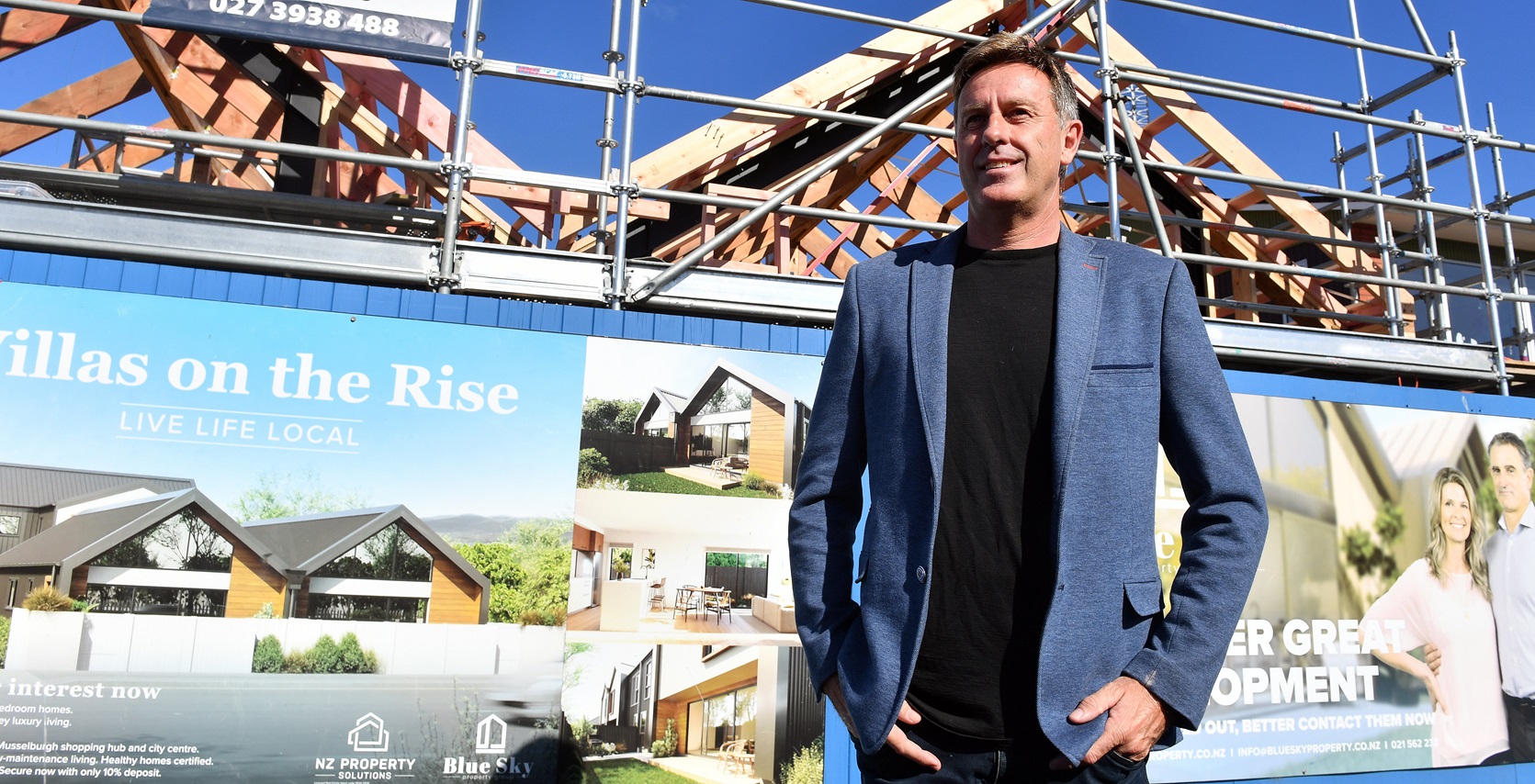
Another said adding thousands of dollars to the cost of building a new home could upset plans to support the city’s growth.
TGC Homes director George Hercus said his company had already been looking at investing elsewhere, but new proposals by the Dunedin City Council to further increase the cost of building would "accelerate that decision".
"Despite the DCC acknowledging that they have a significant shortfall in long-term and short-term accommodation within the city, whether intentionally or not, the DCC has consistently made it increasingly difficult and costly to develop property within Dunedin," Mr Hercus said.
"It has got to the point where TGC Homes has been actively looking at investing our capital in other major and regional centres which do not have the same cost and regulatory obstacles to build that Dunedin has, and the proposed development contribution increases will accelerate that decision."
Alongside its nine-year plan, the DCC is consulting on changes to its development contributions policy — the council said significant increases in charges were proposed for some areas based on the level of spending planned to accommodate growth there.
A council spokesman said the changes proposed were consistent with the government’s view that councils should ensure "growth pays for growth".
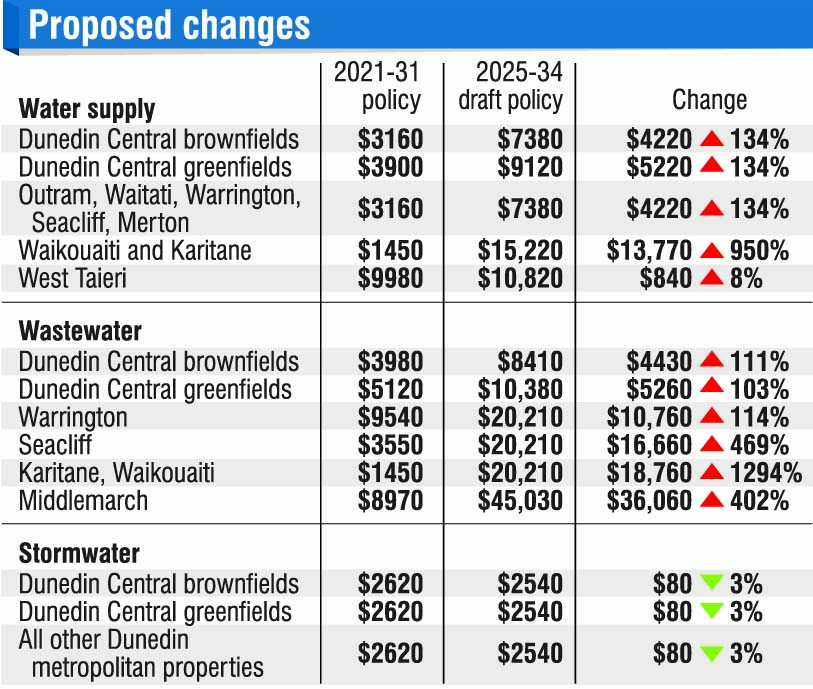
"This cost increase will inevitably hurt the entry end of the market the most."
Mr Hercus said developers who built in established neighbourhoods increased the number of ratepayers paying for the city’s infrastructure.
"The cost of public infrastructure should be shared by the total users over the life of that infrastructure; these are assets that have an operational life of 50-plus years.
"TGC Homes is happy to pay fair and reasonable developer contributions that factor in the infrastructure costs that developers already wear, the revenue from the several decades of ratepayers that use infrastructure assets and the benefits of increasing the number of ratepayers on our current infrastructure base," Mr Hercus said.
"The proposed developer contributions are not fair and reasonable and feel largely like a revenue grab to try catch up on 50-odd years of underspend in public infrastructure."
Blue Sky Property Group director Lyndon Fairbairn said he had had meetings with the council to raise concerns about "rising compliance costs, red tape and inefficiencies".
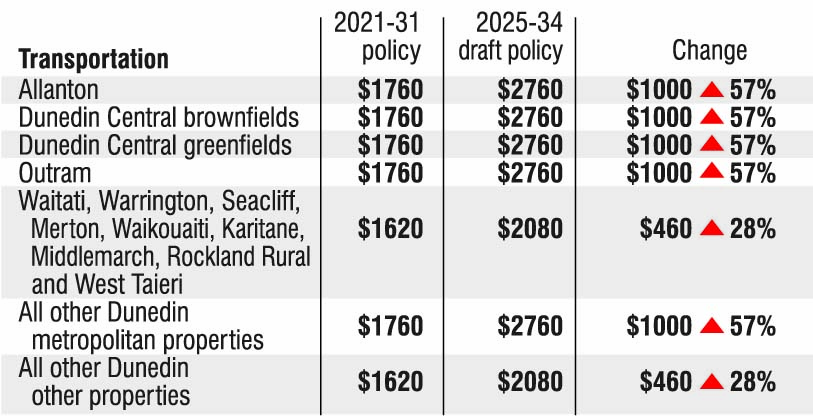
"We need to be building around 700 homes a year to keep up, but we’re falling well short.
"If we want to tackle housing affordability and keep rents down, we’ve got to work together on making development more viable."
Mr Fairbairn said he understood inflation and rising infrastructure costs meant development contributions needed to be reviewed, but the proposed increases felt "like a huge and sudden jump".
DRDL 2023 Ltd founder Roger Fewtrell, who is aiming to build more than 200 affordable homes in the city, said he felt the development contribution increases were a "con".
Mr Fewtrell said he had spent $2.3 million putting infrastructure in at his 18-lot development in Leicester St in North East Valley.
That project would create 18 new rateable properties for the council, each with a rates bill of thousands of dollars a year.
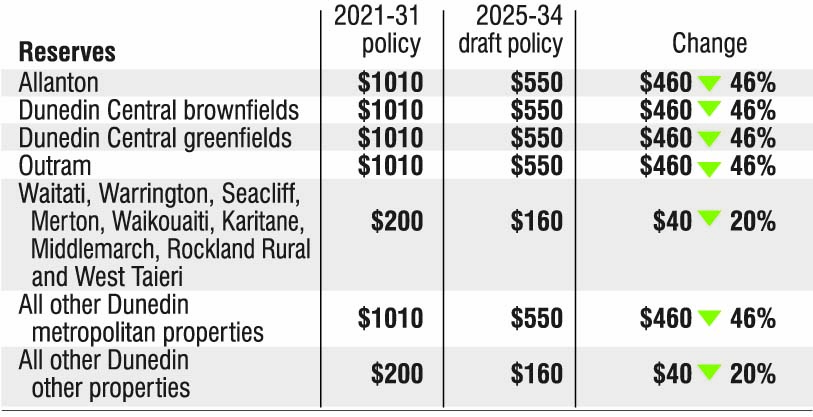
The council put up needless regulatory hurdles and the proposed increases were "a little bit over the top", he said.
Another developer who asked not be named said developers operated on tight margins and not only could the increases shut out first-home buyers, higher development costs would deter new investment in the rental sector, reduce supply and increase rents.
"Larger developers may be able to absorb some of the increased costs, but small to mid-sized developers — often more agile and community-focused — may be driven out of the market.
"This undermines competition and stifles innovation, particularly in the areas of affordable housing and sustainable building design."
Terramark resource management planner Darryl Sycamore said he was aware of developers already relocating their companies to more business-friendly districts — "such as Christchurch" — out of frustration with the council’s present approach.
Dunedin was experiencing the lowest number of annual consent applications since at least 1998 "and these increases may well be the last straw for some developers".
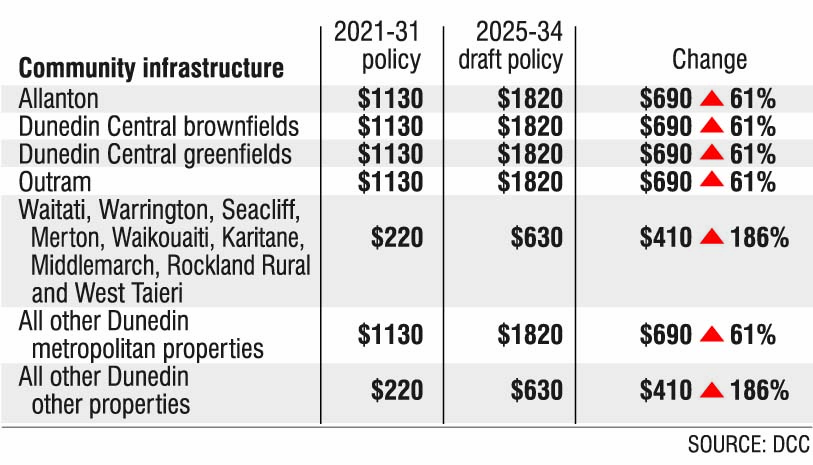
"It is economically unsustainable and development in the townships will stop as there is little possibility of generating a profit."
The council spokesman said the increased development contributions were part of the council’s draft nine-year plan now out for public consultation and anyone, "including developers", was welcome to submit.
"Development contributions help pay for important infrastructure needed for growth, including larger pipes, wider roads, seal extensions and additional capacity for our treatment plants," the spokesman said.
"We seek to encourage development in Dunedin in a range of ways, including through changes to our district plan [the 2GP], which are designed to enable additional housing and meet projected population growth over the coming years.
"The DCC’s proposed development contributions also compare favourably with those charged in other main centres in New Zealand, which are in some cases significantly higher and also proposed to increase."












